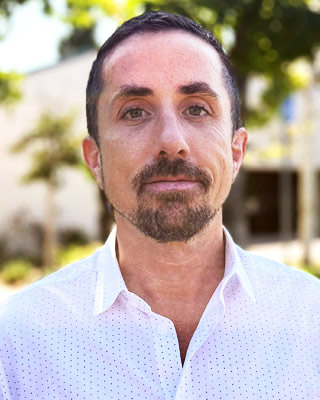Key Takeaways
- Veterans often face dual diagnosis due to trauma, stress, and substance use.
- Integrated treatment with therapy and support is the most effective approach in dual diagnosis in veterans.
- 12 South Recovery in Lake Forest offers specialized care for veterans with PTSD and addiction.
PTSD and Addiction in Veterans
Military service often leaves invisible wounds. For many veterans, trauma from combat or military sexual assault is followed by PTSD and, too often, addiction. Struggling with both conditions is called a dual diagnosis. According to the U.S. Department of Veterans Affairs, co-occurring PTSD and substance use are common among veterans, making recovery more complex but also more important.

What is Dual Diagnosis in Veterans
Dual diagnosis in veterans refers to experiencing both PTSD and a substance use disorder at the same time. This condition is especially common in military populations, as trauma from combat, the loss of comrades, or military sexual trauma often leads to alcohol or drug misuse.
Daily life with PTSD can feel overwhelming. Symptoms such as flashbacks, nightmares, panic attacks, and hypervigilance make it difficult to relax or feel safe. To cope, many veterans turn to alcohol, opioids, or stimulants. While these substances may provide short-term relief, they worsen mental health in the long run, fueling both depression and anxiety while deepening addiction.
Treating PTSD and addiction separately rarely works. Veterans with a dual diagnosis need integrated treatment that addresses both conditions together. Without this approach, relapse is likely, and symptoms remain unmanaged.
At 12 South Recovery in Lake Forest, CA, we provide specialized dual diagnosis treatment for veterans. Our programs combine evidence-based therapy, medication support when appropriate, and holistic practices to strengthen resilience and long-term recovery.
PTSD Treatment vs. Dual Diagnosis Treatment in Veterans
| PTSD-Only Treatment | Dual Diagnosis Treatment |
| Focuses only on trauma-related symptoms | Addresses both trauma and substance use together |
| May reduce flashbacks or nightmares temporarily | Improves overall mental health, reducing relapse risk |
| Leaves underlying substance misuse unaddressed | Tackles root causes of both conditions at the same time |
| Higher likelihood of relapse into alcohol/drugs | Builds coping skills to manage triggers without substances |
| Provides partial relief but limited long-term success | Supports long-term recovery and stability for veterans |
Why Are Veterans at Risk for PTSD and Addiction
Veterans face significantly higher risks of both PTSD and addiction due to the intense demands of military life and the challenges of returning home. The overlap of trauma, stress, and limited access to mental health support creates conditions where substance use may feel like the only option for relief.
Key risk factors include:
- Combat exposure: Experiencing constant danger, injury, or witnessing death creates trauma that often resurfaces as nightmares, flashbacks, or hypervigilance.
- Military sexual trauma: Assault or harassment during service raises vulnerability to PTSD, depression, and substance use.
- Transition stress: The sudden loss of identity, purpose, and structure after service can lead to anxiety, depression, and alcohol misuse.
- Isolation: Veterans may feel disconnected from civilian life, leading to loneliness and reluctance to seek support.
- Unmet mental health needs: Stigma and barriers to care prevent many from receiving therapy or treatment early on.
Comparison of PTSD Risk Factors and Addiction Triggers in Veterans
| PTSD Risk Factors | Addiction Triggers |
| Combat exposure and trauma | Using alcohol or drugs to manage flashbacks |
| Military sexual trauma | Substances used to numb emotional pain |
| Hypervigilance and sleep problems | Turning to sedatives, opioids, or stimulants |
| Transition stress after service | Alcohol use to cope with loss of structure |
| Isolation and disconnection | Substance use for temporary relief or escape |
These pressures often fuel depression, anxiety, and trauma responses. Without proper treatment, reliance on substances can create a dual diagnosis, where both conditions must be addressed together for lasting recovery.
At 12 South Recovery, we specialize in treating these co-occurring conditions. Through integrated therapy, trauma care, and addiction treatment, we help veterans break the cycle and build stable, fulfilling lives.
When Should Veterans Seek Dual Diagnosis Treatment
Recognizing the right time to seek dual diagnosis treatment is critical for veterans. Warning signs include:
- Using alcohol or drugs to escape memories or sleep.
- Increased nightmares, flashbacks, or panic attacks.
- Sudden changes in mood, appetite, or sleep.
- Trouble maintaining work or relationships.
- Isolation from family or social support.
If these symptoms interfere with daily life, treatment should begin immediately. The earlier veterans receive integrated care for both PTSD and addiction, the better the outcomes for long-term recovery.
What Therapies Help Veterans with Dual Diagnosis
Effective treatment for veterans requires combining therapies that target both trauma and addiction. At 12 South Recovery, we use:
- Cognitive Behavioral Therapy (CBT): Restructures negative thought patterns tied to trauma and substance use.
- Dialectical Behavior Therapy (DBT): Teaches coping skills for intense emotions and cravings.
- Eye Movement Desensitization and Reprocessing (EMDR): Helps veterans process trauma memories safely.
- Trauma therapy: Creates space to face difficult memories without being overwhelmed.
- Group therapy: Offers peer support from other veterans who understand similar struggles.
These therapies provide veterans with coping skills, emotional regulation strategies, and healthier ways to manage triggers.
Why Family Support Matters in Veteran Recovery
Veteran recovery improves significantly when families are involved. PTSD and addiction impact not only the veteran but also spouses, children, and close relatives. Family support helps rebuild trust, improve communication, and reduce conflict at home.
Family therapy at 12 South Recovery gives loved ones the tools to understand PTSD symptoms and addiction triggers. This creates a more stable environment where the veteran feels supported and recovery becomes more sustainable.
How Does 12 South Recovery Support Veterans with PTSD and Addiction
At 12 South Recovery in Lake Forest, CA, we provide specialized programs for veterans with dual diagnosis. Our care includes:
- Detox and residential treatment for safe stabilization.
- Partial hospitalization (PHP) and IOP for structured, ongoing support.
- Therapies such as CBT, DBT, EMDR, trauma therapy, and family therapy.
- Holistic approaches include mindfulness, yoga, and exercise to support physical and emotional health.
Our goal is to help veterans address the root causes of trauma, overcome addiction, and build healthy, stable lives.
Hope and Healing for Veterans Start Here
At 12 South Recovery, we guide veterans through effective dual diagnosis treatment with proven therapies, holistic support, and family involvement. Let us help you or your loved one find strength, stability, and a renewed sense of purpose. Call 12 South Recovery Today!































